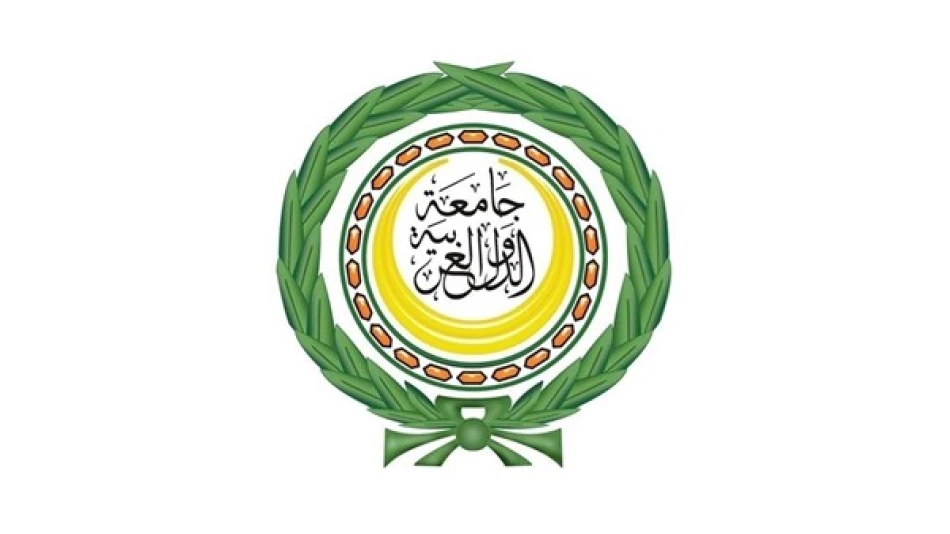
Arab League condemns Netanyahu's remarks on annexing Arab lands
Arab League Condemns Netanyahu's "Greater Israel" Vision as Direct Threat to Regional Sovereignty
The Arab League has issued its strongest condemnation yet of Israeli Prime Minister Benjamin Netanyahu's recent statements about annexing parts of sovereign Arab territories to establish what he termed "Greater Israel." The regional bloc's response signals a hardening diplomatic stance that could further isolate Israel internationally and complicate future peace negotiations across the Middle East.
Escalating Rhetoric Meets Institutional Pushback
In a formal statement released today, the Arab League characterized Netanyahu's remarks as a direct violation of Arab state sovereignty and an attempt to undermine regional security and stability. The organization's language represents some of its harshest diplomatic criticism in recent years, describing the Israeli leader's vision as reflecting "extremist mentality steeped in colonial delusions."
The timing of these statements is particularly significant, coming as Netanyahu faces domestic political pressure and international scrutiny over Israel's military operations in Gaza and the West Bank. His invocation of "Greater Israel" – a concept that historically refers to territorial expansion beyond current borders – appears designed to appeal to his right-wing political base while potentially derailing ongoing diplomatic efforts.
International Law and Regional Security Implications
Legal Framework Under Threat
The Arab League's statement explicitly frames Netanyahu's comments as a challenge to international law and principles of international legitimacy. This legal framing is crucial because it positions any future territorial actions as violations of established international norms, potentially triggering broader diplomatic and economic consequences.
The reference to "collective Arab national security" suggests the League views these statements not as isolated rhetoric, but as a fundamental threat requiring coordinated regional response. This collective security approach mirrors similar language used during previous regional crises, including the 1967 and 1973 Arab-Israeli conflicts.
UN Security Council Pressure Campaign
By calling on the UN Security Council to "assume its responsibility" in confronting what it terms "extremist statements," the Arab League is essentially requesting international intervention. This diplomatic strategy has precedent – similar appeals have been made regarding Israeli settlement expansion in the West Bank, though with mixed results due to US veto power in the Security Council.
Strategic Context and Regional Dynamics
Netanyahu's territorial rhetoric comes at a time when several Arab states have been normalizing relations with Israel through the Abraham Accords. His statements risk undermining these diplomatic gains by reinforcing regional suspicions about Israeli expansionist intentions. Countries like the UAE and Bahrain, which have established formal ties with Israel, now face domestic pressure to reconsider their positions.
The Arab League's unified response also demonstrates that despite internal divisions on other issues – from Syria to Yemen – territorial sovereignty remains a unifying principle. This consensus could translate into coordinated diplomatic, economic, or political actions against Israel in international forums.
Implications for Middle East Stability
The escalating rhetoric on both sides creates several concerning scenarios. Netanyahu's statements may be intended primarily for domestic consumption, but they risk becoming self-fulfilling prophecies if they trigger military responses from neighboring countries or non-state actors. The Arab League's warning about increased "hatred and regional rejection" suggests awareness that such rhetoric can fuel extremist movements across the region.
For international observers, this diplomatic clash highlights the fragility of Middle East peace processes. Any territorial expansion attempts would likely trigger broader regional conflict, potentially drawing in global powers and disrupting energy markets. The Arab League's appeal to international law suggests it's preparing for a prolonged diplomatic campaign to isolate Israel should rhetoric translate into action.
Most Viewed News

 Layla Al Mansoori
Layla Al Mansoori






